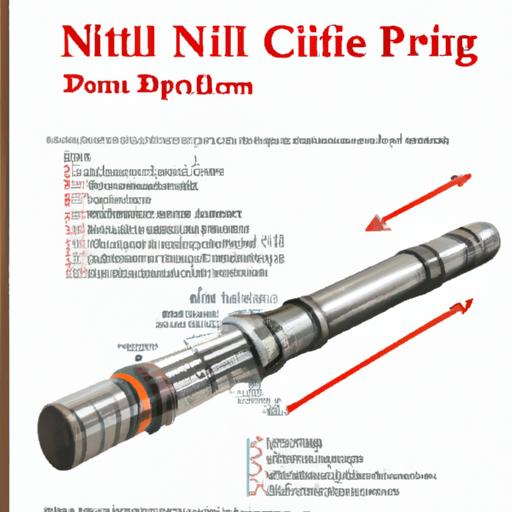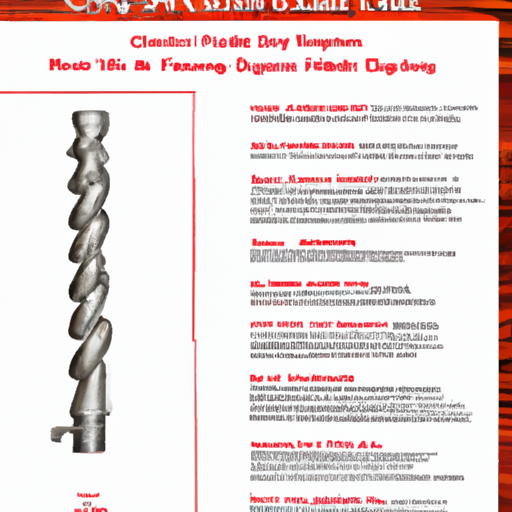The Complete Guide to Drill Pipe NC38: Applications, Specifications, and Maintenance

Introduction:
Drill pipes are an essential component of drilling operations in the oil and gas industry. One commonly used type is the NC38 drill pipe. In this comprehensive guide, we will delve into the various aspects of NC38 drill pipes, including their applications, specifications, and maintenance. By understanding the importance of NC38 drill pipes, operators and professionals can optimize drilling operations and ensure the longevity of their equipment.
1. What is a Drill Pipe?
A drill pipe is a critical component of a drilling system that connects the drilling rig to the drill bit. It provides the necessary strength and stiffness to withstand the forces and torque involved in the drilling process. Drill pipes are typically made of high-strength alloy steel to withstand the challenging drilling conditions encountered in oil and gas exploration.
2. Introduction to NC38 Drill Pipe:
The NC38 drill pipe is a popular type of drill pipe used in many drilling operations. The "NC" stands for "Numeric Controlled," indicating that it is manufactured to specific industry standards. The number "38" refers to the outer diameter of the pipe, which is 3 1/2 inches (89 mm). NC38 drill pipes are commonly used in both onshore and offshore drilling operations.
3. Applications of NC38 Drill Pipe:
NC38 drill pipes find extensive applications in various drilling operations, including:
a) Oil and Gas Exploration: NC38 drill pipes are widely used in oil and gas exploration projects, enabling the extraction of valuable resources from beneath the earth's surface.
b) Geothermal Drilling: NC38 drill pipes are also employed in geothermal drilling, where they play a crucial role in reaching deep underground heat sources for energy generation.
c) Water Well Drilling: NC38 drill pipes are utilized in water well drilling projects, ensuring a reliable and steady supply of clean water.
4. NC38 Drill Pipe Specifications:
To ensure compatibility and safety during drilling operations, NC38 drill pipes adhere to specific industry standards and specifications, including:

a) Length: NC38 drill pipes are typically available in standard lengths of 31 feet to 46 feet (9.4 to 14 meters). Longer drill pipe lengths are often used in offshore drilling operations.
b) Outer Diameter: The outer diameter of NC38 drill pipes is precisely 3 1/2 inches (89 mm), allowing for seamless integration with other drilling equipment.
c) Wall Thickness: The wall thickness of NC38 drill pipes ranges from 0.28 to 0.44 inches (7 to 11 mm), ensuring the required strength to withstand drilling forces and torque.
d) Weight: The weight of an NC38 drill pipe varies based on its length and wall thickness. The average weight ranges from 19 to 24 pounds per foot (28 to 36 kg/m).
e) Thread Connection: NC38 drill pipes have a specific thread connection known as the "NC38 connection." This connection ensures a secure and leak-free joint between drill pipes.
5. Maintenance of NC38 Drill Pipe:
Proper maintenance is crucial to optimize the performance and lifespan of NC38 drill pipes. Here are some essential maintenance practices to consider:
a) Cleaning and Inspections: After each drilling operation, thoroughly clean the drill pipe to remove any debris or drilling mud. Regularly inspect the pipe for signs of wear, corrosion, or cracks that may compromise its integrity.
b) Thread Inspection and Lubrication: Inspect the thread connection for signs of wear or damage. Apply a suitable thread lubricant to ensure smooth engagement and prevent galling or seizing.
c) Storage and Handling: Store drill pipes in a clean and dry environment to prevent corrosion. Handle them with care to avoid accidental damage or dropping.
d) Regular Load Testing: Conduct regular load testing to verify the integrity and strength of the drill pipe. This helps identify any potential weaknesses or defects that may cause failure during drilling operations.
e) Proper Torque Application: Ensure that the drill pipe is properly torqued during assembly to prevent over-tightening or under-tightening, which may lead to thread damage or failure.
Conclusion:
NC38 drill pipes are essential components in drilling operations across various industries. Understanding their applications, specifications, and maintenance requirements is crucial for optimizing drilling efficiency and ensuring equipment longevity. By adhering to industry standards and implementing proper maintenance practices, operators can maximize the performance and reliability of NC38 drill pipes, ultimately contributing to successful drilling projects.




 8613371530291
8613371530291